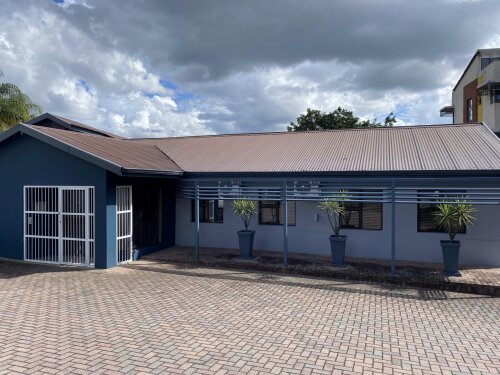Best Oil, Gas & Energy Lawyers in Johannesburg
Share your needs with us, get contacted by law firms.
Free. Takes 2 min.
List of the best lawyers in Johannesburg, South Africa
About Oil, Gas & Energy Law in Johannesburg, South Africa
Oil, gas, and energy sectors are pivotal to South Africa's economy, including Johannesburg, a central hub for business and legal affairs in the country. Johannesburg's strategic position and robust infrastructure make it an ideal location for energy companies. The city's involvement in traditional oil and gas exploration and production is complemented by initiatives aimed at expanding renewable energy sources. Legal frameworks in this field are complex, involving various stakeholders, including governmental bodies, private companies, and local communities. The laws governing this sector in Johannesburg are designed to balance the need for energy security, economic development, and environmental protection.
Why You May Need a Lawyer
In the intricate landscape of the oil, gas, and energy industry, legal expertise is often essential. You may need a lawyer in the following situations:
- Negotiating and drafting contracts for exploration, production, or sales.
- Ensuring compliance with regulatory requirements related to environmental standards and safety protocols.
- Resolving disputes involving land rights, environmental concerns, or contractual disagreements.
- Navigating the legalities of mergers, acquisitions, or partnerships with other companies.
- Advising on tax implications and structuring for energy projects.
- Assisting with renewable energy projects, including licensing and financing.
Local Laws Overview
South Africa's legal framework for the oil, gas, and energy sector is influenced by several key pieces of legislation:
- The Mineral and Petroleum Resources Development Act (MPRDA): Regulates the exploration and production of mineral and hydrocarbons resources in South Africa.
- The National Energy Act: Provides the legislative foundation for energy policy promoting diverse and sustainable energy sources.
- Gas Act: Governs the distribution, trading, and production of natural gas in South Africa.
- Electricity Regulation Act: Focuses on regulating the generation, transmission, and distribution of electricity.
- Environmental Management Act: Ensures that all development and production activities adhere to environmental ethics and sustainability.
Frequently Asked Questions
What types of permits are required for drilling in South Africa?
In South Africa, you need exploration or production rights, as outlined by the MPRDA, alongside environmental authorizations, and possibly a water use license, depending on the location.
How does South Africa regulate offshore oil and gas activities?
The South African government regulates offshore activities through the MPRDA and specific environmental regulations to ensure safe and sustainable practices.
What is the role of renewable energy in South Africa’s energy sector?
Renewable energy plays an increasingly important role, with government programs encouraging solar, wind, and hydroelectric projects through initiatives like the Renewable Energy Independent Power Producer Procurement Programme (REIPPPP).
What are the implications for local communities where oil and gas operations take place?
Operators must adhere to social and labour plans and environmental management to minimize impacts and ensure benefits to local communities, such as job creation and infrastructure development.
How do environmental regulations affect energy companies in Johannesburg?
Energy companies must comply with strict environmental regulations concerning emissions, waste management, and land use to mitigate their impact on the environment.
What should I consider when investing in South Africa's energy sector?
Consider regulatory compliance, local partnerships, tax incentives, and market demand. It’s also wise to stay informed on renewable energy policies and initiatives.
How does Johannesburg’s infrastructure support the energy sector?
The city features advanced transport and communication infrastructure, a robust financial sector, and proximity to regulatory bodies, all conducive to supporting energy activities.
What legal challenges could arise from mergers in the energy sector?
Potential challenges include anti-trust issues, regulatory compliance, and public interest concerns, necessitating comprehensive due diligence and strategic guidance.
How are land rights handled in oil and gas exploration?
Land rights in exploration areas are maintained through negotiated access agreements with landowners and meeting governmental regulatory standards.
What is the role of the Department of Energy in South Africa?
The Department of Energy develops policies and oversees industry standards to ensure a sustainable and secure supply of energy throughout the country.
Additional Resources
For more information or assistance, consider contacting these resources:
- Department of Mineral Resources and Energy (DMRE): The governmental body responsible for regulating the sector.
- South African Oil & Gas Alliance (SAOGA): An association representing companies in the oil and gas value chain.
- National Energy Regulator of South Africa (NERSA): Overseeing electricity, piped-gas, and petroleum regulation.
- Environmental Affairs Department: Handles all environmental aspects of energy projects.
Next Steps
If you need legal assistance in the oil, gas, and energy sector in Johannesburg:
- Research: Start by thoroughly researching law firms that specialize in energy law.
- Consult: Schedule consultations to discuss your specific legal needs and the firm's expertise.
- Verify: Ensure the chosen firm or lawyer is registered with the Legal Practice Council of South Africa.
- Scope & Agreement: Clearly define the scope of work, fees, and expected outcomes in an engagement letter or retainer agreement.
By taking these steps, you can better navigate the complexities of the oil, gas, and energy legal landscape in Johannesburg.
Lawzana helps you find the best lawyers and law firms in Johannesburg through a curated and pre-screened list of qualified legal professionals. Our platform offers rankings and detailed profiles of attorneys and law firms, allowing you to compare based on practice areas, including Oil, Gas & Energy, experience, and client feedback.
Each profile includes a description of the firm's areas of practice, client reviews, team members and partners, year of establishment, spoken languages, office locations, contact information, social media presence, and any published articles or resources. Most firms on our platform speak English and are experienced in both local and international legal matters.
Get a quote from top-rated law firms in Johannesburg, South Africa — quickly, securely, and without unnecessary hassle.
Disclaimer:
The information provided on this page is for general informational purposes only and does not constitute legal advice. While we strive to ensure the accuracy and relevance of the content, legal information may change over time, and interpretations of the law can vary. You should always consult with a qualified legal professional for advice specific to your situation.
We disclaim all liability for actions taken or not taken based on the content of this page. If you believe any information is incorrect or outdated, please contact us, and we will review and update it where appropriate.
















